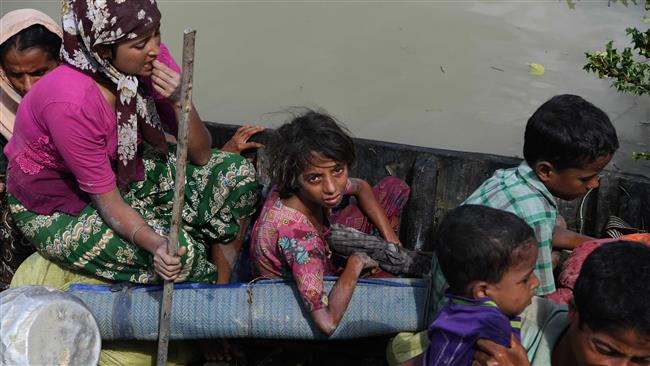
RNA - The request comes after Myanmar military admitted that some of its soldiers were involved in the murder of 10 captured Rohingya men in Qestern Rakhine state, Anadolu reported.
In a rare move, a military investigation report on Wednesday admitted its soldiers and ethnic villagers had killed 10 captured Rohingya people and buried them in a mass grave near Inn Din village in Maungdaw township of Rakhine State in September.
“These brutal killings confirm the urgent need for a throughout and credible investigation into all alleged rights abuses in the Northern part of Rakhine state where military operations have forced at least 650,000 people, mostly Rohingya Muslims, fled cross-border to neighboring Bangaldesh since August last year," in a statement, the EU delegation in the country said.
“Impunity of perpetrators of such serious human rights violations must end,” it said.
It called on the government of Myanmar to “fully cooperate with Human Rights Council’s independent international fact-finding mission and other independent observers, including journalists and to provide for their full, safe and unhindered access to all conflict areas without delay”.
Amnesty International welcomed the admission by the military, saying it is a sharp departure from its policy of blanket denial of any wrongdoing during the operation in Maugndaw areas.
“However, it is only the tip of the iceberg and warrants serious independent investigation into what other atrocities were committed amid the ethnic cleansing campaign that has forced out more than 655,000 Rohingya from Rakhine State since last August,” Amnesty International’s Regional Director for Southeast Asia and the Pacific James Gomez said in statement on Wednesday.
It said Amnesty International and others have documented overwhelming evidence that far beyond Inn Din, in villages and hamlets across northern Rakhine State, the military has murdered and raped Rohingya, and burned their villages to the ground.
“These acts amount to crimes against humanity and those responsible must be brought to justice,” James Gomez.
847/940